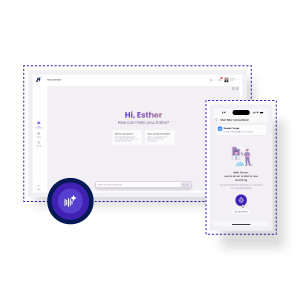A ransomware group calling itself Gunra claims it has stolen the digital medical history of nearly half a billion patients from American Hospital Dubai, one of the United Arab Emirates’ best‑known private providers.
The attackers say they encrypted critical systems in the early hours of June 1, forcing clinicians onto emergency “downtime” procedures and exposing the hidden cost of lagging cyber‑resilience in health care.
An Overnight Breach With Global Reach
At 2 a.m. local time, the hospital’s IT team discovered that its VMware infrastructure and EMC Unity storage volumes were no longer responding.
An internal incident memo, later leaked by the hackers, confirmed that Cerner Millennium—now Oracle Health EHR—MyCare, the laboratory system and several third‑party tools were offline.
Gunra’s first post on its dark‑web blog claimed the group exfiltrated the entire four‑terabyte EHR—compressed to 700 GB—containing “about 450 million patient records.”
Screenshots the gang shared with DataBreaches.net list more than 4.5 million unique patient IDs, although it is unclear whether duplicates inflate the headline number.
Sensitive Fertility Files Among The First Leaks
To prove the heist, Gunra handed journalists a spreadsheet of appointments from American Hospital Dubai’s fertility service.
Names, contact details and treatment notes show couples deciding on sperm preservation before chemotherapy and individuals weighing difficult conception options.
The data, stripped of identifying details by reporters, underlines just how intimate—and lucrative—medical records can be on the criminal market.
Hackers Taunt Hospital Leaders, Hint At Cover‑up
In chats with DataBreaches, a spokesperson styling themself Gunra’s “client manager” accused hospital executives of masking the breach by telling patients the outage was “a system update.”
The gang published an internal email chain in which a call-centre agent asked how to handle a sceptical patient. A hospital executive replied: “Please ignore and don’t share it.”
The hackers seized on the line as evidence of a cover‑up and threatened to publish card numbers and “private information” if leaders kept silent.
Since mid‑June, Gunra has posted folder listings, payroll spreadsheets and a file that appears to catalogue three months of admissions—including age, admission date, attending physician and reason for visit. Researchers have since counted more than 2,700 employee folders in one dump alone.
Legal Spotlight Now On UAE Privacy Laws
Under the UAE Health Data Law (Federal Law No. 2 of 2019) and the broader Personal Data Protection Law (Federal Decree‑Law No. 45 of 2021), private hospitals must notify regulators of breaches that pose a “high risk to rights and freedoms” and, where practical, inform patients within 72 hours.
American Hospital Dubai has yet to publish a formal notice or respond publicly to questions about patient notification. Regulators will likely ask whether the hospital stored such a massive trove unencrypted, as Gunra asserts.
If investigators confirm lax protection, Article 20 of the PDPL—requiring organisations to adopt “appropriate technical and organisational measures”—could expose the hospital to heavy fines and civil claims.
A Wake‑up Call For Every Clinic
Health‑care ransomware hits a raw nerve: lives depend on uninterrupted access to electronic records, and the data itself sells for up to 10 times the price of a stolen credit card on underground forums. Attackers exploit that leverage; hospitals, facing immediate patient‑safety risks, often feel pressured to negotiate.
Yet experts say paying does little to guarantee deletion. Worse, every breach invites class‑action lawsuits, higher cyber‑insurance premiums and lasting distrust.
In the Middle East—where big‑ticket private medicine is booming—analysts view the American Hospital Dubai hack as the region’s harsh reminder that cyber defence must mature as quickly as clinical expansion.
How HealthOrbit AI Helps Close The Gaps
HealthOrbit AI was built on the premise that clinical efficiency and data security are two sides of the same coin. Our ambient AI scribe captures doctor‑patient conversations in real time, encrypts transcripts at rest and in transit, and never stores raw audio outside the hospital’s chosen jurisdiction.
Multi‑factor authentication, role‑based access controls and continuous monitoring align with HIPAA, GDPR, ISO 27001 and NHS DTAC standards—controls that directly map to the UAE PDPL’s “appropriate measures” test.
Just as important, HealthOrbit AI’s Clinical Safety Case (DCB 0129) and DSPT documentation are updated every release cycle, giving IT teams the evidence regulators expect long before an audit or incident strikes.
For hospitals migrating from legacy EHR modules, our zero‑trust architecture offers an extra shield: even if bad actors breach infrastructure, the data they find remains unreadable without authorised keys.
The Bottom Line
Gunra’s raid on American Hospital Dubai is not an isolated flare‑up; it is another milestone in a widening campaign against health systems worldwide.
Regulators now have the legal muscle—and public backing—to penalise organisations that fall short on security hygiene.
HealthOrbit AI cannot prevent every phishing email or zero‑day exploit, but it does give care providers a hardened, compliance‑first foundation for clinical documentation. That reduces the attack surface, slashes the time attackers spend undetected and preserves trust when minutes—and megabytes—matter most.
Ready to strengthen your defences? Book a demo with HealthOrbit AI today and see how proactive security and smarter workflows can protect patients and keep clinicians focused on care.




